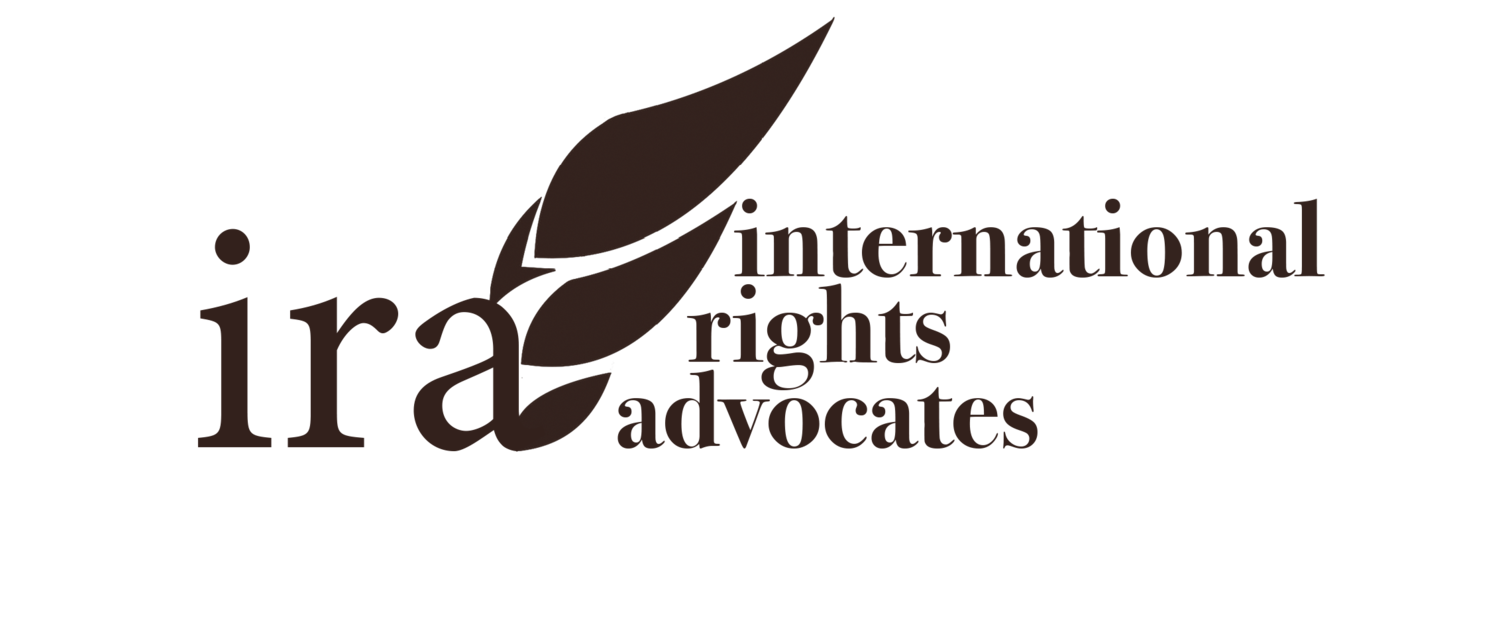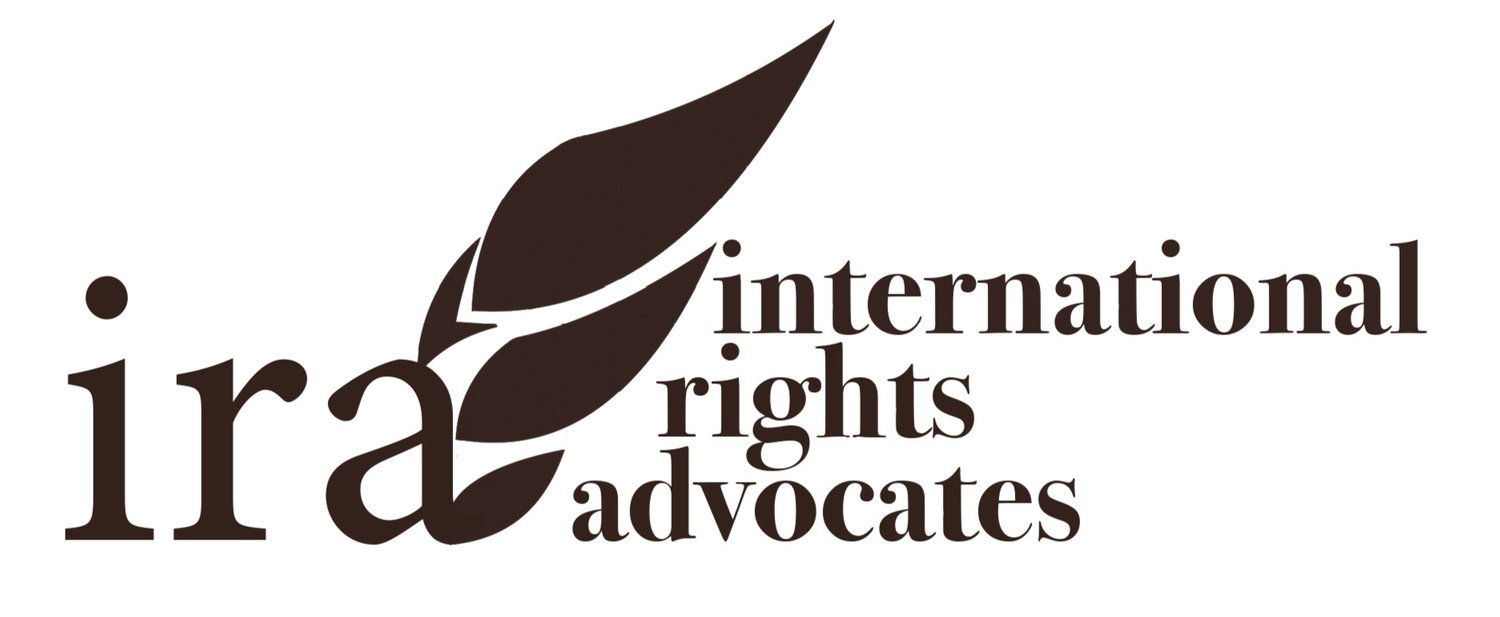🚩📣 CASE UPDATE 3.18.2024:
We’re going to trial on April 24, 2024 to get justice.
🚩📣 CASE UPDATE 9.6.2022:
IRAdvocates and its co-counsel won a major victory in the Chiquita case involving paramilitary hit squads working for Chiquita in Colombia. This case was first filed by IRAdvocates in 2007 and we have been fighting for our clients for over 15 years. The Eleventh Circuit Court of Appeals reversed the District Court’s summary judgment and found there is sufficient evidence for the first group of test plaintiffs to go to trial. Justice is coming, at long last.
There should be a clear legal pathway to prosecute those who are knowingly funding terrorist to carry out murder for profit.
IRAdvocates represents 2,154 Colombian nationals who seek to hold Chiquita responsible for the murder of their family members killed by the paramilitary group Autodefensas Unidas de Colombia (AUC) that received knowing and substantial assistance from Chiquita.
This civil case was filed in 2007 after Chiquita was found criminally liable for making payments to the AUC, a designated terrorist organization, from 1997-2004. Chiquita admitted its illegal payments to the AUC and pled guilty to the federal felony of financing a designated terrorist organization.
In other words, Chiquita admitted that it funded the AUC for seven years, and there is no question that, within the specific banana zones where Chiquita funded the AUC, thousands of innocent civilians were murdered, including IRAdvocates’ clients. Rather than accept responsibility for the devastation of entire communities by their hired guns, Chiquita has engaged in a lengthy legal battle, now 14 years and counting.
Chiquita’s main defenses are that they were “coerced” into paying the AUC and that Plaintiffs can’t prove that their family members were killed by the AUC as opposed to some other criminal actor. Both defenses are frivolous, but due to the procedural posture of the case, Chiquita has been able to delay interminably what will ultimately be justice for the victims of the murderous rampage of Chiquita’s paid assassins.
Beginning as early as 1987, Chiquita (through its Colombian subsidiary Banadex) provided significant funds to left-wing guerrilla groups, including the Revolutionary Armed Forces of Colombia ("FARC") and the National Liberation Army ("ELN"). Chiquita made those payments for nearly a decade.
Around the time Chiquita’s payments to the guerrillas ended, its payments to the AUC—the illegal terrorist group battling the guerrillas—began. Chiquita switched sides in the Colombian armed conflict once the AUC could mount a successful attack on the guerrillas and drive them out of the banana-growing regions. Chiquita made more than one hundred payments to the AUC totaling over $1.7 million. Many Chiquita officers and directors knew about and approved of the payments, and some of them even designed the payment schemes and personally met with the AUC to plan the payments. Chiquita’s AUC payments led to a criminal conviction in U.S. criminal court and a $25 million fine. As part of its guilty plea, called a Factual Proffer, Chiquita admitted to making payments to both guerrillas and the AUC.
Background
Shockingly, as the Factual Proffer makes very clear (¶ 60), the prevailing opinion of Chiquita’s executives was not to stop the payments because the Colombia operation was the company’s most profitable. At least one board member expressly said at a board meeting, “just let them sue us.” Thousands of plaintiffs have now done just that and sued Chiquita and its current and former officers and directors because Chiquita provided substantial assistance to the terrorist groups that killed their family members.
Plaintiffs’ action was first filed against Defendant Chiquita Brands International, Inc. in federal court in Washington, D.C. in June 2007, but was later transferred to the Southern District of Florida as part of a multi-district litigation. This process combined IRAdvocates’ case with six other similar cases against Chiquita and greatly complicated the process. IRAdvocates’ original complaint brought claims under the Alien Tort Statute (ATS), the Torture Victims Protection Act (TVPA), and Colombian wrongful death law based on Chiquita’s financial and material support of the AUC – activity which strengthened the finances of the AUC and increased its ability to carry out its violent campaign of terror against large civilian populations in the banana-growing regions of Colombia.
On April 17, 2013, the U.S. Supreme Court issued a decision in Kiobel v. Royal Dutch Petroleum Co. that created a new requirement for an ATS case to go forward on an extraterritorial claim: the claims must “touch and concern” the territory of the United States. While the Plaintiffs here argued that Chiquita made all the decisions to fund the AUC in the U.S., devised mechanisms in the U.S. to make and hide the payments, and U.S. managers oversaw the system, a very conservative panel of the Eleventh Circuit Court of Appeals ultimately held that Plaintiffs could not meet the new Kiobel test and remanded the case with instructions to dismiss Plaintiffs’ ATS claims. While the ATS appeal was pending, the U.S. Supreme Court issued another decision very damaging to human rights claims and held in Mohamad v. Palestinian Authority that the TVPA only allows claims against natural persons, and not corporations.
These decisions limited Plaintiffs’ claims. Plaintiffs’ current operative Third Amended Complaint now has viable TVPA claims against individual defendants, various current or former directors, officers and employees of Chiquita that were involved in forming, implementing, and concealing Chiquita’s decision to provide support to the AUC in Colombia. In addition, Plaintiffs have viable claims against Chiquita based on Colombian wrongful death law.
The Court ordered the parties to use a “bellwether” system of going forward with small groups of eight Plaintiffs to trial to allow the parties to better assess the value and viability of the thousands of other pending cases. After extensive and expensive discovery, Plaintiffs were prepared for trial on these first eight claims. Chiquita made a motion for summary judgement arguing primarily that the first eight bellwether Plaintiffs could not establish that the AUC killed their decedents. In a truly shocking and disappointing ruling, the District Court agreed and dismissed the eight Plaintiffs’ claims. Plaintiffs appealed the dismissal and established solid grounds for allowing the eight cases to go to trial. The Court of Appeals for the Eleventh Circuit held oral argument on October 5, 2021.
While the appeal is pending, the Court ordered that a second group of eight test Plaintiffs complete discovery and prepare for trial. Once discovery was completed, Chiquita made a second motion for summary judgement, raising largely the same issues as were disputed in the first round. Plaintiffs filed an opposition, and the briefing was fully completed in February 2021. The parties are waiting for a ruling from the Court as to whether these cases will proceed to a jury trial. On October 5, 2021 the Court of Appeals for the Eleventh Circuit held a lively oral argument. We should learn in a few months if, as expected, the Court will overturn the grant of summary judgment and remand the case for trial.
Case Details
Docket No. 08-01916 Op. Below Federal District Court for the Southern District of Florida Argument N/A
Opinion Pending Vote: N/A Judge: Kenneth A. Marra Term: N/A
Holding
Pending
Judgment
Pending
The Court of Appeals for the Eleventh Circuit held oral argument on October 5, 2021. Further, there is a pending summary judgment motion before Judge Marra. Look for updates on this site.
Documents
What People Are Saying
The story of the civil conflict in Colombia and how multinationals stepped in to benefit from the conflict is a first-hand account of corporate greed putting profits over people. Chiquita is a prime example in that it hired a terrorist paramilitary group to protect its banana plantations in Colombia, resulting in the deaths of thousands of innocent people.
— Pulitzer Center
After Chiquita pled guilty to funding a terrorist paramilitary group in Colombia from 1997-2004, resulting in the murders of thousands of innocent people, the company reached a plea deal with the Bush Administration’s Department of Justice and was fined only $25 million.
— Los Angeles Times
After he filed the first case against Chiquita, CBS news quoted IRAdvocates’ Executive Director, Terry Collingsworth, as saying, “a company that pays a terrorist organization that kills thousands of people should get the capital punishment of civil liability and be put out of business by punitive damages.”
— CBS News
How you can help.
Contribute to our work by donating.
Advocate by reaching out to the companies being sued.
Sharing on social media using our toolkit









